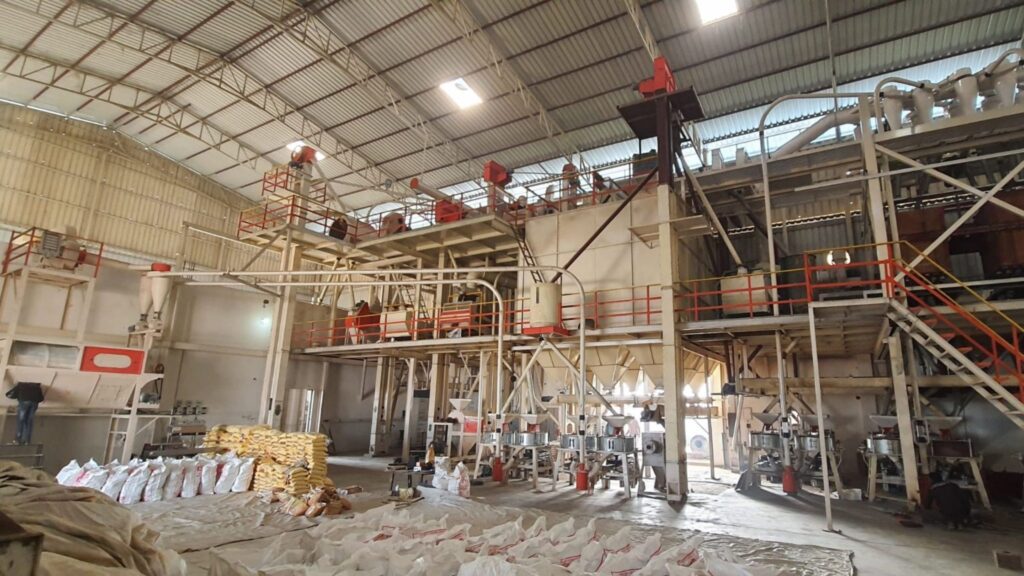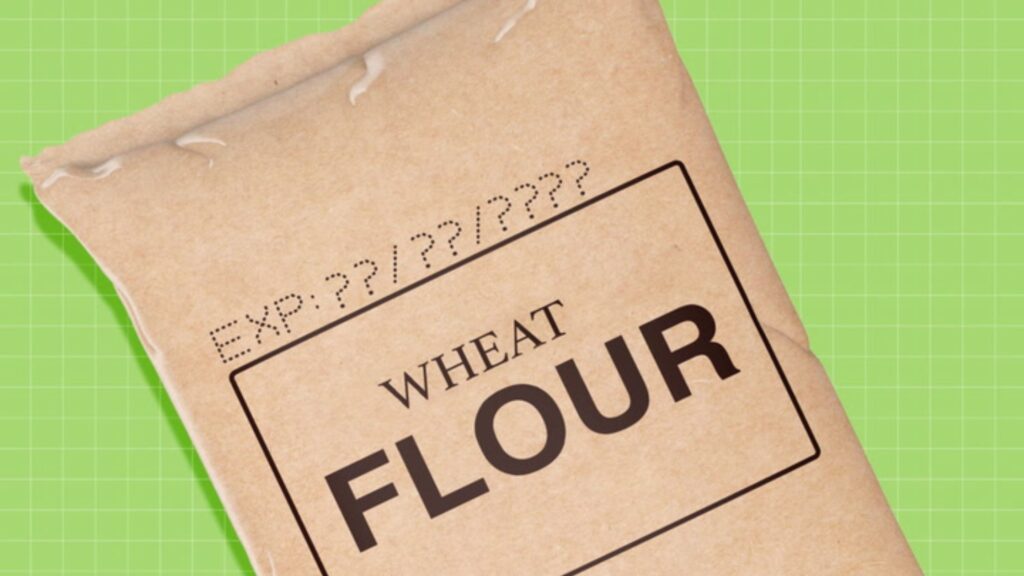Starting a flour business from home can be a profitable opportunity that requires minimal investment, especially for those looking to enter the food industry. Atta, which is a pink wheat flour used prominently in South Asian cuisine, is in demand primarily because of its significant market demand. The business utilizes the simplicity and necessity of the product, making it accessible to a wide potential clientele.
The process of starting a flour business from home involves a few key steps. First and foremost, one must understand the quality of wheat and how to procure it. High-quality wheat yields excellent flour, which results in customer satisfaction and loyalty. Next, having the right equipment is a must. While there are commercial flour mills, smaller, cheaper versions for home use also exist, reducing initial costs.

In addition, packaging and branding play a key role in attracting customers. Simple, informative packaging that sensitively communicates quality and freshness can enhance marketability.
Table of Contents
Entrepreneurs entering the flour business must also take local regulations and permits into consideration. Starting from home reduces costs, but it is extremely important not to conflict with food safety standards and local laws.
Marketing strategies such as word-of-mouth marketing, social media presentation, and partnerships with local stores or community centers can be helpful in increasing reach.
1. Choosing the Best Source for Your Flour Business: Local Markets vs. Direct Farmers
To start an atta (flour) business, you first need to decide where you will get the wheat for your product. You can consider two main sources: one is buying wheat from the local market and the other is to establish direct contact with the farmers.
Buying wheat from the local market provides you convenience, as here you can get wheat from different sellers at a competitive price. But in this option there is no complete control over the quality and consistency of supply.

On the other hand, if you buy wheat directly from the farmers, you can get a guarantee of better quality and you can ensure the supply of a certain quantity of wheat. Moreover, by buying directly from the farmer, you can also reduce costs due to the lack of intermediaries and give better prices to the farmers, which can also establish a strong relationship with them.
Thus, for the atta business you can consider both the options and also ensure that your purchasing process is streamlined and cost-effective. If you establish direct contact with farmers, you will have to visit the farms to check the quality of wheat and consider entering into an agreement with farmers for a stable supply for a long term.
2. Steps needed to start a flour mill business: from equipment setup to market success
Flour trading is a business venture that has huge potential, especially when you prepare it for sale in the local market. If you have a wheat factory, you can grind it into flour and sell it. Following are some of the main steps for this:

- Preparation of equipment and resources: First of all, you have to arrange the equipment and resources required to make flour in your factory. This includes a mill for grinding wheat, screener, flour kneading machine, and packing, etc.
- Quality control: You have to ensure that your flour should be of high quality. Especially when you are new in the market, the quality of your products can help attract them.
- Market research: You will need to understand the demand and primary characteristics of flour in your area. You need to know what are the features of your products that can set you apart from others.
- Marketing and sales: You have to market your products properly. This includes the financial investment you make to decide on the price wisely, packaging the products, and making them available for sale.
- Legal and Business Procedures: You have to follow the local rules and business procedures. This is related to establishment and understanding business licenses, income tax registration, and other legal responsibilities.
Flour business can be very suitable in the local market with good guidance and good management. This business can be quite profitable if you do the production, quality control, and marketing properly. Availability of products at the right time, quality, and service are important for this.
3. The critical role of quality in the flour business: ensuring customer satisfaction and long-term success
Maintaining quality in atta business is extremely important, as it has a direct impact on the success of your business and customer satisfaction. If you make any kind of compromise in quality in your atta business, it can cause many problems to your business.
The first and most important aspect is customer satisfaction. When customers are dissatisfied with the quality of your atta, they start looking for other options. Unsatisfied customers will not only give you negative reviews but will also refrain from buying your product in the future. A small unhappiness of the customer can affect the image of your business and reduce your sales drastically.

Secondly, a lack of quality creates a negative image of your product, which reduces your competitiveness in the market. If your atta is of lower quality than other brands available in the market, customers will hesitate to buy it and will turn to your competitors. This can hamper the growth of your business and you will not be able to get the expected return on your investment.
Thirdly, a lack of quality can lead to product wastage and increased expenses. If the quality of your atta is poor, your customer complaints may increase, which leads to additional costs. Moreover, your atta will not last long due to poor quality, causing you to face problems in return and resale of the atta.
Finally, a drop in quality also affects your brand loyalty. When customers have full confidence in the quality of your product, they are likely to buy your product again and again and remain loyal to your brand. If you let this trust break, customers may be attracted to other companies and your brand may be lost.
Thus, taking care of quality in your atta business is not only beneficial for your business, but it is also essential for your customer satisfaction and long-term success. A quality product not only satisfies your customer, but also guides your business towards stability and growth.
4. Important aspects of flour packaging: ensuring safety, quality and market appeal
Packing plays a vital role in the atta business, which not only ensures the safety of the product but also plays a vital role in its marketing. With the right packing, you can maintain the quality of your atta and increase customer satisfaction. Here are some important points discussed that can help in improving the packing of atta:
1.Importance of Packin
The first priority of packing of atta is its safety. If the packing is not proper then the atta can be affected by moisture, dust, and other external elements, which can harm its quality. By using proper packing material, you can keep the atta safe and maintain its freshness for a long time. Moreover, attractive and professional packing creates a positive image in the mind of the customer and also strengthens the brand identity.

2. Selection of Packing Materia
There are different types of materials available for packing atta such as plastic bags, paper bags, and wax paper bags. Each material has its own advantages and disadvantages. Plastic bags are waterproof and long-lasting, while paper bags are eco-friendly and can look more attractive. Choosing the right packing material depends on your budget, product safety, and marketing strategy.
3. Packing design and labeling
The design and labeling of atta packing are also important. The packing should clearly show important details such as product information, brand name, and manufacturing date. This provides information to customers about the quality and freshness of the product An attractive and professional design can attract customers and make your brand stand out from other competitors.
4.Online packing options
If you are looking for online packing options, you can get a variety of packing materials and services on India’s leading e-commerce platform such as www.indiamart.com On Indiamart, you can find packing materials, machines, and various packing options that can meet your atta business needs. Here you also get options to buy materials in bulk which can reduce your expenses.
5. Packing Process and Quality Control
To ensure good packing, the packing process must be well organized and standardized. You must ensure that the atta does not suffer any kind of damage during packing. Regular checks and tests are necessary for quality control so that the quality of packing is maintained and any defects can be rectified in time.
Good packing not only ensures the safety and quality of the atta but also maintains the professional image of your business. Selection of suitable packing material and design can help you present your product in a better way and stay ahead of the competition in the market.
5. Leveraging Local Market Sales: Growing Atta Business through Direct Shop Engagement
Instead of marketing the flour for sale, you may see a great opportunity in selling directly to shops in your local market. Selling in the local market allows you to establish a direct contact with customers and understand their likes and dislikes better. Here are some key points that explain the effectiveness of this approach:

- Direct contact in the local market:
The major advantage of selling in the local market is that you can establish a direct contact with customers. This allows you to know their preferences, requirements and feedback immediately. Also, you can give customers personalized information about your product, which increases trust and trustworthiness. This gives people a good idea about the quality and specialty of your flour. - Wholesale opportunities:
Your local shopkeepers may express their desire to buy flour in wholesale, which opens up the possibility of a steady and regular sale for you. Selling in wholesale allows you to receive larger orders, which can better stabilize your business. Additionally, wholesale sales allow you to sell a larger quantity of flour to customers, which can help increase your profits. - Low Marketing Expenses:
Selling in local markets does not require large marketing expenses. Instead of promotions and advertising, you can focus on the quality of your product. By establishing your presence in local shops and markets, you can promote your product without large expenses. - Local Recognition and Trust:
Selling in the local market can increase your brand’s local recognition and trust. Local customers prefer to buy products in their locality, which can increase your brand loyalty. If your flour sells well in local shops and is liked by customers, it will increase the credibility of your product and attract other potential customers.
Thus, selling flour in the local market provides you with an opportunity to connect directly with the customer and establish a stable business without the need for marketing. This strategy can help increase your sales and give stability to your business.
6. Understanding Capital Requirements for Starting a Flour Business: Key Investments in Wheat, Packaging, and Grinding
When people think of starting a flour business, the biggest concern is how much capital will be required for this business. To start an flour business, you may have to invest a total of ₹8,000 to ₹10,000. This investment mainly includes the cost of wheat, packaging, and grinding. Let us understand these aspects in detail:

- Cost of wheat: Wheat is the main ingredient of the flour business, and its cost is a crucial point for starting your business. You have to select high-quality wheat so that your flour is also the best. The price of wheat may vary according to the availability and quality in the local market.
- Generally, you have to buy enough wheat so that the production runs continuously. If you buy in bulk, you may get better prices, but it will be necessary to choose the right quantity and quality.
- Cost of packaging: Packaging plays an important role in the flour business. Packaging not only protects the flour, but it also creates a professional image of your product. For this, you can use different types of packaging materials such as plastic bags, paper bags, or boxes.
- The cost of packaging will depend on the quality and design of the material you choose. Good packaging will not only increase the shelf-life of your product but will also help customers recognize your brand.
- Grinding Cost: Grinding flour requires a quality grinding machine. This machine ensures the fineness and uniformity of your flour. The cost of the machine can be a significant part of your budget, and it depends on the different types of machines.
- There are many types of grinding machines available in the market, the price of which depends on their capacity, performance, and brand. Choosing the right machine can not only increase the production capacity but also maintain the quality of the flour.
Keeping these major expenses in mind, you can make a precise budget plan that is essential for the successful start of your business. With the right investments and wise spending, you can run your flour business successfully and expect good profits.
7. How to Make More Money in the Atta Business: A Simple Guide to Pricing and Management
The chances of making profit in the atta (flour) business are quite bright, especially when you sell atta at a price lower than the market price. Suppose the price of atta in the market is ₹30 per kg, and you sell it at ₹25 per kg. In this case, you will make a profit of ₹5 per kg.

Now, if you sell 250 to 500 kg of atta daily, your profit will be calculated as follows:
Profit on selling 250 kg of atta:
₹5 (profit per kg) × 250 kg = ₹1250 profit per day.
Profit on selling 500 kg of atta:
₹5 (profit per kg) × 500 kg = ₹2500 profit per day.
These figures show that if you sell 250 kg of atta in a day, you will get a profit of ₹1250, while if you sell 500 kg, this profit will increase to ₹2500.
if you plan well keeping in mind the balance of market demand and supply, you can run this business in an even better way. To get the highest profit, you have to pay proper attention to the purchase, storage, and distribution of atta, so that you can reduce the cost and earn more profit.
Moreover, it is also important that you maintain good relations with your customers and fulfill their requirements on time. If you can maintain a regular customer base and give priority to their satisfaction, your profit can increase further.
Thus, the atta business, if managed properly and the price is kept competitive, can be a stable and profitable business.
starting a flour business from home provides a promising source for entrepreneurs who want to enter the food industry with little investment. By paying attention to quality procurement, inexpensive equipment, packaging, following regulations, and strategic marketing, individuals can successfully establish and grow their flour business, meeting the constant demand for this important food product.
If u want to Watch the Video You can Go to our You tube Businovations Channel and watch the video……
To Read the Recent Posts Click the link…
“How to Start a Profitable Butter Business: Strategic Steps for Success”

